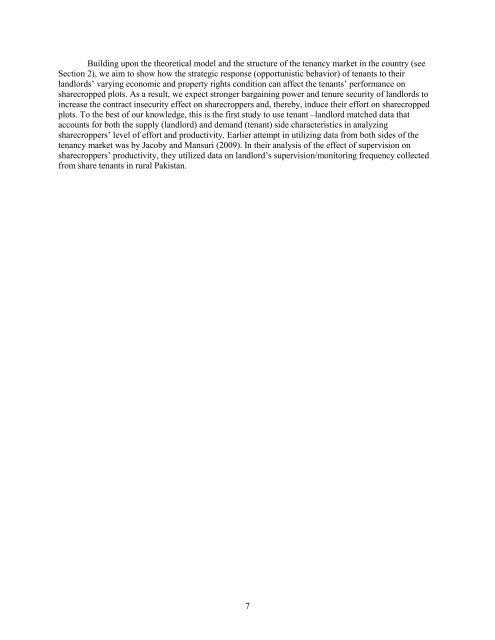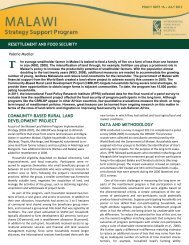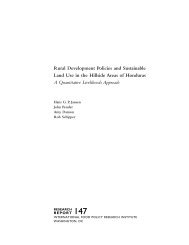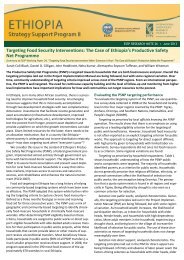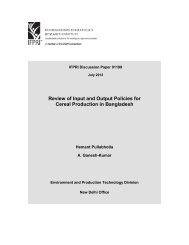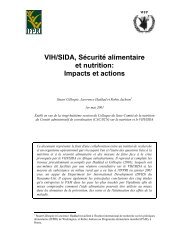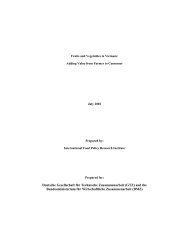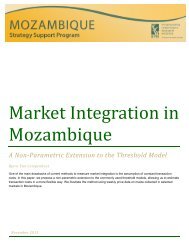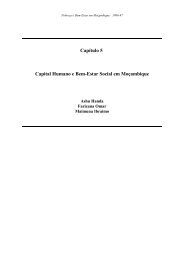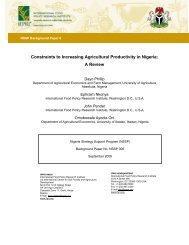Reverse-Share-Tenancy and Marshallian Inefficiency - International ...
Reverse-Share-Tenancy and Marshallian Inefficiency - International ...
Reverse-Share-Tenancy and Marshallian Inefficiency - International ...
You also want an ePaper? Increase the reach of your titles
YUMPU automatically turns print PDFs into web optimized ePapers that Google loves.
Building upon the theoretical model <strong>and</strong> the structure of the tenancy market in the country (see<br />
Section 2), we aim to show how the strategic response (opportunistic behavior) of tenants to their<br />
l<strong>and</strong>lords’ varying economic <strong>and</strong> property rights condition can affect the tenants’ performance on<br />
sharecropped plots. As a result, we expect stronger bargaining power <strong>and</strong> tenure security of l<strong>and</strong>lords to<br />
increase the contract insecurity effect on sharecroppers <strong>and</strong>, thereby, induce their effort on sharecropped<br />
plots. To the best of our knowledge, this is the first study to use tenant –l<strong>and</strong>lord matched data that<br />
accounts for both the supply (l<strong>and</strong>lord) <strong>and</strong> dem<strong>and</strong> (tenant) side characteristics in analyzing<br />
sharecroppers’ level of effort <strong>and</strong> productivity. Earlier attempt in utilizing data from both sides of the<br />
tenancy market was by Jacoby <strong>and</strong> Mansuri (2009). In their analysis of the effect of supervision on<br />
sharecroppers’ productivity, they utilized data on l<strong>and</strong>lord’s supervision/monitoring frequency collected<br />
from share tenants in rural Pakistan.<br />
7


